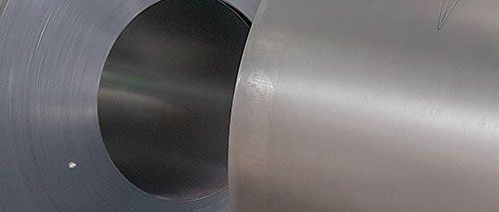Reducing Energy Consumption & Improving Finishes on Cold Rolled Steel
As steel mills increasingly turn towards cold-rolled steel for consumer goods such as automotive parts, home appliances, furniture, and electrical products, the demand for improved quality and efficiency in the cold rolling process continues to rise. Compared to hot rolling, cold rolling offers enhanced precision, resulting in superior finishes, formability, strength, and durability. Despite the benefits cold rolling offers, the cold rolling process can be challenging and costly. Tight product specifications and more demanding new alloys along with higher speeds, reductions and pressures, contribute to increased energy consumption and operational costs. Additionally, elimination of stain and optimization of surface finishes are growing demands that can be achieved with properly formulated rolling fluids.
To reduce energy consumption, maintain mill and steel cleanliness, and improve product quality while minimizing costs, it is important to select high-performance lubricants tailored to your application.
Reducing Energy Consumption
Cold roll mills utilize large motors and drive systems to support the increased forces, pressures, and speeds required to achieve thin final gauges. If not properly managed, these factors can lead to excessive friction and slower speeds, which increase energy consumption. Reducing energy use and CO2 emissions is not only essential for operational sustainability, but also for cost reduction.
Reduce Friction: Cold rolling is often a lengthy process, so optimizing friction is key to minimizing process time and energy usage. Rolling oils with anti-wear and extreme pressure properties create a protective barrier, reducing friction between the steel and rollers.
Lower Rolling Force: By decreasing the force required to form the steel, less energy is consumed during the rolling process.
Manage Temperatures: Lower friction leads to reduced system temperatures, enabling improved temperature control. The proper formulation of rolling fluid can provide optimum lubricity throughout the thermal range in the rolling process, and do so at minimized concentrations. This results in controlling both undue heat generation while also allowing for higher water content to reduce heat that is generated during the rolling process.
Improving Surface Finishes
Although cold-rolled steel already produces a smoother surface finish than hot-rolled steel, it is still vulnerable to imperfections from scale, inclusions, tramp oil, and head, tail, and edge staining. Certain lubrication properties can impact surface finish:
Tramp Oil Demulsibility: Demulsifiers help separate tramp oils—unwanted oils from other lubricants—that contaminate the emulsion. This process occurs without affecting or diluting the lubrication or cooling properties of the emulsion, ensuring a cleaner finish.
Particle Size Distribution: A more consistent particle size allows for a uniform presence of the lubricity additives in the roll bite and optimizes the boundary and extreme pressure characteristics and resultant surface finish.
Mill Water Quality: The supply and quality of mill water can vary greatly. A properly-formulated rolling fluid can minimize the effects of negative or changing attributes in the water.
Reduce Your Total Cost of Ownership with FUCHS
The volume of cold rolling fluids is far greater than hot rolling fluids, so mills must find ways to reduce costs without compromising quality. Lubricants with customized formulation, combined with expert maintenance solutions like FUCHS Smart Services, help to lower the total cost of ownership.
Reduce Scrap & Rework: Optimum surface finish and cleanliness reduce the likelihood of defects, lowering costs associated with cleaning and reprocessing materials.
Extend Equipment Life: Reducing friction protects your equipment against wear, thus reducing maintenance and energy costs and extending its operational life.
Reduce Lubricant Costs: Optimum and sustainable lubricants are more cost-effective over time, reducing the frequency of replacements, maintenance, waste processing, and the associated costs.
High-Quality, Comprehensive Lubrication Solutions for Cold Rolling
FUCHS offers a range of advanced and customized lubricants for cold rolling processes, including products from our RENOFORM RO brand which are designed for high-reduction tandem, reversing and tempering mills. These synthetic and semi-synthetic fluids provide excellent lubrication, economic performance, and high-speed rolling capabilities while ensuring mill cleanliness and superior strip quality. These products improve efficiency, protect equipment, and maintain product quality in demanding cold rolling applications.
Contact us today to discover how our advanced lubricants and expert solutions can help you achieve a more efficient, sustainable, and profitable cold rolling process.
